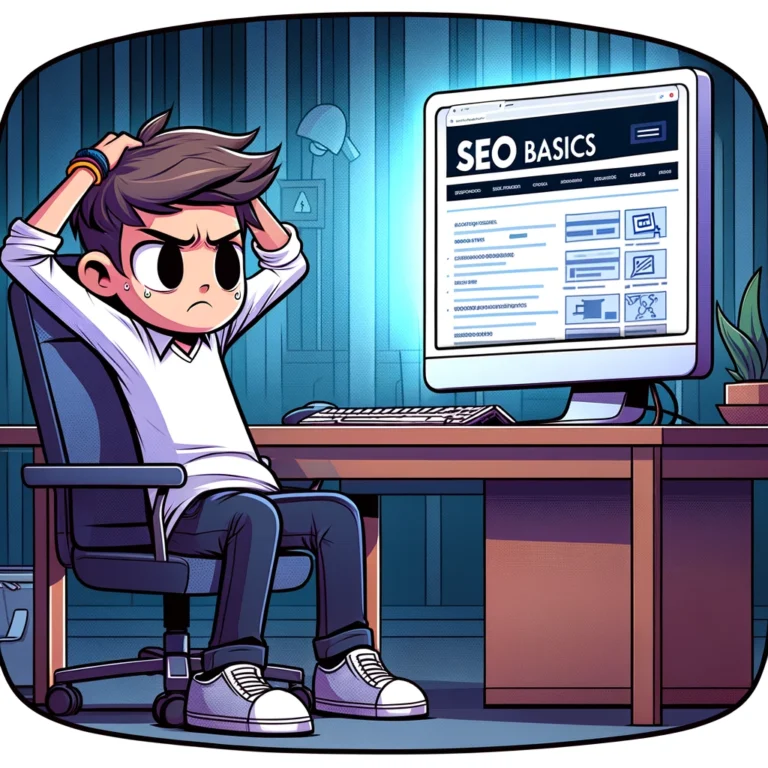In today’s digital age, the online presence of a small business is as crucial as its physical storefront. With millions of users turning to search engines daily to find products and services, appearing prominently in search results can be the deciding factor between a business that thrives and one that merely survives. Organic search, an essential component of Search Engine Optimization (SEO), offers small businesses a cost-effective way to increase their visibility and reach potential customers without the need for expensive advertising.
Understanding SEO and Organic Search
SEO involves optimizing a website to increase its visibility in the unpaid search results of a search engine. Organic search results are the listings that appear because of their relevance to the search terms, as opposed to being advertisements. For small businesses, the appeal of organic search lies in its cost-effectiveness and long-term benefits.
Keywords: The Building Blocks of SEO
Keywords are phrases that potential customers use to search for products or services online. Identifying the right keywords is the first step in an effective SEO strategy. Small businesses must focus on relevant, specific keywords that capture their niche or local area to compete more effectively with larger companies.
On-Page Optimization: Fine-Tuning Your Website
On-page optimization involves updating your website’s HTML tags, headings, and content to include relevant keywords. It also includes making your site easy to navigate and ensuring that it loads quickly on all devices. These adjustments help search engines understand and rank your site more effectively.
Content is King: Creating Value for Your Audience
Content marketing is a powerful tool in the SEO arsenal. By creating informative and engaging content, such as blog posts, how-to guides, and videos, businesses can attract and retain a clearly-defined audience. Quality content not only helps improve your site’s ranking but also establishes your brand as an authority in your field.
Benefits of Organic Search for Small Businesses
Cost Efficiency
Unlike paid advertising, organic search relies on time and effort rather than a direct payment to search engines. This makes SEO an attractive option for small businesses with limited marketing budgets.
Building Trust and Credibility
Websites that appear higher in organic search results are often considered more credible and trustworthy by consumers. Investing in organic SEO helps build your brand’s reputation over time.
Long-Term Results
While SEO takes time and effort, the results are long-lasting. Unlike paid ads that stop generating traffic the moment you stop paying, a well-optimized website can continue to attract visitors for years.
DIY SEO Strategies for Small Businesses
Mobile Optimization
With the increasing use of smartphones to access the internet, mobile optimization has become crucial. Ensure that your website is responsive and offers a good user experience on mobile devices.
Local SEO
For small businesses, local SEO is particularly important. This includes optimizing your website for local search terms, creating a Google My Business account, and ensuring that your business details are consistent across the web.
Building Backlinks
Backlinks — links from other websites to yours — are a major ranking factor. Gain backlinks by networking with other local businesses and creating shareable content.
Regular Updates
Search engines favor websites that are regularly updated with fresh content. Keep your website dynamic by adding new content, updating existing pages, and regularly checking for any broken links.
For small businesses today, the importance of organic search cannot be overstated. Implementing effective SEO practices not only enhances visibility but also fosters growth by attracting more traffic, building credibility, and providing long-lasting results. By focusing on SEO basics such as keyword research, on-page optimization, content marketing, and local SEO, small businesses can leverage the power of organic search to compete in the bustling online marketplace. Start today, and watch your business grow!

Navigating Google Algorithm Updates
Understanding and adapting to Google algorithm updates is crucial for maintaining and improving your organic search ranking. Google frequently updates its algorithms to provide the best possible search results to users. These changes can affect how websites are ranked, which means what worked yesterday might not work as well today. Keeping informed through SEO news websites and Google’s own updates can help small businesses stay ahead.
Importance of Analytics
To effectively measure the success of SEO efforts, it’s essential to use tools like Google Analytics. These tools provide insights into how visitors interact with your website, which keywords are driving traffic, and where improvements can be made. Regular analysis allows businesses to refine their strategies and make data-driven decisions to enhance their online presence.
Engaging on Social Media
While not a direct ranking factor for search engines, social media can significantly influence SEO. Engaging with customers on platforms like Facebook, Twitter, and Instagram helps to drive traffic to your website. Additionally, social signals such as likes, shares, and comments may indirectly impact search rankings by increasing online visibility and backlinks to your site.
User Experience (UX) Optimization
Google places a high emphasis on the user experience. A website that is easy to navigate and enjoyable to use is likely to retain visitors longer, reducing bounce rates and increasing the chances of conversion. Factors such as site speed, user interface design, and interactive elements play a crucial role in UX optimization.
Security: A Key SEO Factor
Security is another critical factor in SEO. Websites that use HTTPS encryption are favored by search engines as they provide a secure connection. Ensuring your website is secure not only helps with your SEO efforts but also builds trust with your visitors.
Advanced SEO Techniques
While mastering the basics of SEO is essential, there are more advanced techniques that can further enhance a small business’s online presence.
Schema Markup
Schema markup is a form of microdata that makes it easier for search engines to parse and interpret the information on your web pages. It can help enhance the way your pages appear in SERPs with rich snippets, which are small pieces of information that will likely increase click-through rates.
Voice Search Optimization
As voice search becomes more popular, optimizing for voice search is becoming increasingly important. This involves focusing on natural language and question-based queries which are common in voice searches.
Artificial Intelligence and SEO
AI is transforming SEO strategies with tools that can analyze data more efficiently and automate tasks like keyword research and content generation. Embracing AI tools can provide small businesses with insights that can significantly improve their SEO strategies.
Summary
DIY SEO is a viable and effective strategy for small businesses aiming to enhance their digital footprint without significant investments in paid advertising. By understanding the basics of SEO, staying updated with the latest trends, and gradually adopting more advanced techniques, small businesses can ensure that their website not only attracts more visitors but also converts them into customers.
Adopting a proactive approach to SEO, focusing on creating high-quality content, optimizing for mobile and voice searches, and enhancing user experience, will position any small business for success in the digital world. Start implementing these strategies today and witness the transformation in your business’s online engagement and customer base growth.
References
- Google Search Central: https://developers.google.com/search
- Moz: https://moz.com/
- Search Engine Journal: https://www.searchenginejournal.com/
- Google Analytics: https://analytics.google.com/analytics/web/
- Schema.org: https://schema.org/
- TechCrunch on AI in SEO: https://techcrunch.com/



